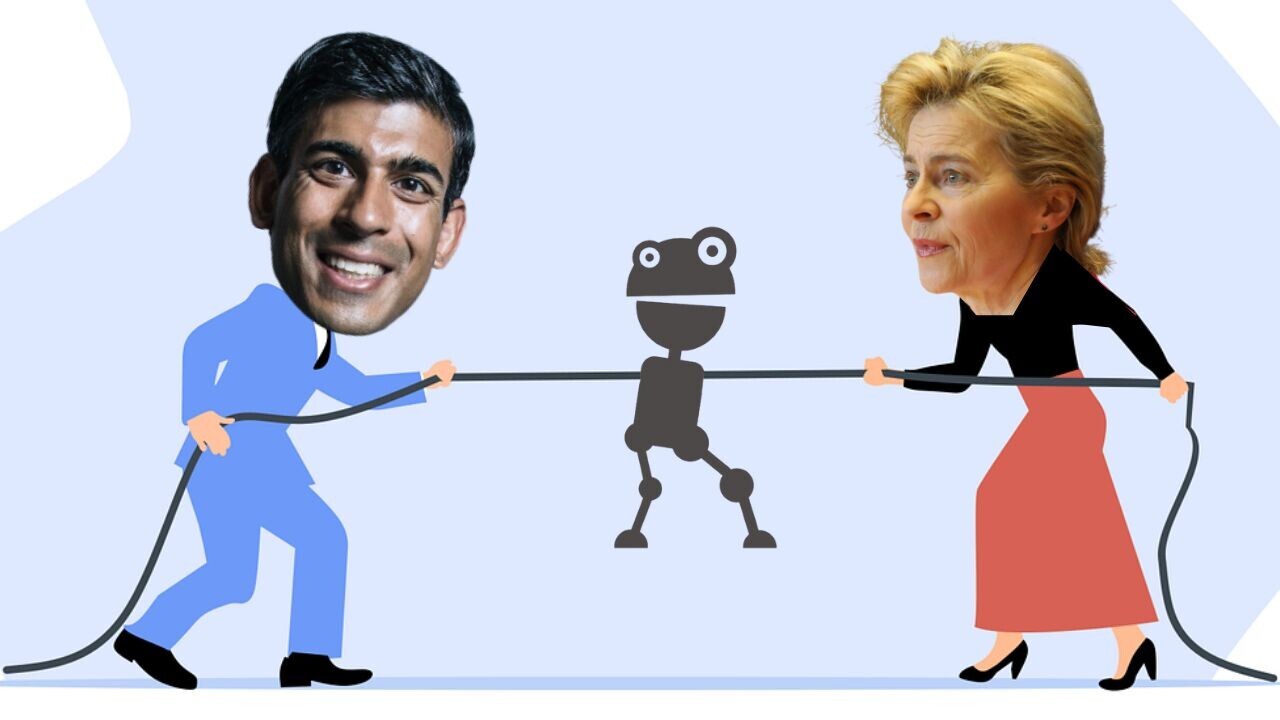
The EU’s landmark AI Act is moving closer to reality, as a rival rulebook forms across the English Channel.
The union aims to agree on draft rules for the world-first AI statute next month, Reuters reported on Monday.
“We are still in good time to fulfil the overall target and calendar that we assumed in the very beginning, which is to wrap it up during this mandate,” Dragos Tudorache, an MEP and co-rapporteur of the EU AI Act, told the news agency.
As the EU legislation nears enactment, lawmakers in the UK are shaping a very different approach. Their priorities are stimulating business, providing a competitive advantage, and supporting responsible innovation.
The vision was first laid out in a policy paper last July. In the document, the government said it plans to build the “most pro-innovation regulatory environment in the world.”
“Regulation that’s proportionate, light-touch, and forward-looking is essential.
Ministers noted that the UK ranks third in the world for number of academic journal citations, and received more investment in AI companies than France and Germany combined in 2021. The new regulatory environment, they hope, will further boost business use of AI, attract international investment, and nurture talent.
“A regulatory framework that is proportionate, light-touch, and forward-looking is essential to keep pace with the speed of developments in these technologies,” said then-digital secretary Nadine Dorries.
Notably, the British government has publicly criticised the EU’s AI regulation. In a December press release celebrating the UK tech sector’s position as the most valuable in Europe, the country’s “less centralised approach” was spotlighted for praise.
This approach will leave regulation up to existing organisations — such as Ofcom, which regulates broadcasting — rather than a single overarching body. As a result, rules can be tailored to different sectors and amended over time. But this flexibility entails certain risks.
Critics fear the sectoral focus will lead some areas to fall through the gaps. There are also concerns about potentially conflicting rules, and existing regulators monitoring AI without sufficient expertise.
There are currently no plans to back the proposals with new laws. Instead, regulators will be guided by core principles, such as safety, transparency, and fairness. This could reduce arduous obligations, but detractors warn it will increase AI risks.
“It’s clear they’re looking for comparative strength.
The proposals for “lighter touch” options, meanwhile, include guidance, voluntary measures, and creating sandboxes. The government hopes this lures businesses to the UK.
“It’s clear from the tone and what the government’s saying that they’re looking for comparative strength on AI — and the EU is the most proximate comparator, by geography and by market,” Joe Jones, Director of Research and Insights at the International Association of Privacy Professionals, told TNW.
The EU’s legislation takes a broader approach. A new body, the European AI Board, will oversee the framework, with member states able to create their own enforcement bodies.
Uses of AI will be categorised into different risk levels. Systems with the highest risks could be prohibited, while less risky ones would have minimal requirements.
As is the case with the GDPR, rule-breakers could face heavy penalties. Violations would be punishable by fines of up to €30 million or 6% of global turnover.
Further amendments are expected to come. The EU’s AI Act still has to work its way through a lengthy legislative process, while the UK’s white paper on the rules has been delayed.
Ultimately, both regulators are searching for the elusive balance sought from all tech legislation: reducing risks without stifling innovation. Their priorities, however, have diverged.
The EU has placed heavy weight on safety, while the UK has emphasised the business case. Their choices could shape the continent’s AI landscape for years to come.
Get the TNW newsletter
Get the most important tech news in your inbox each week.





